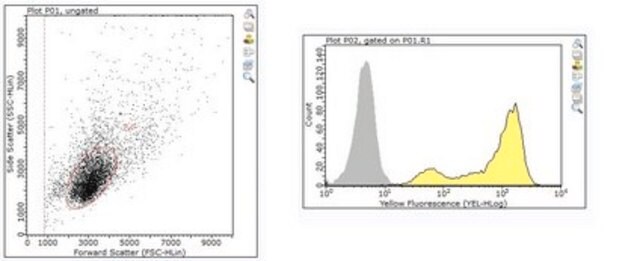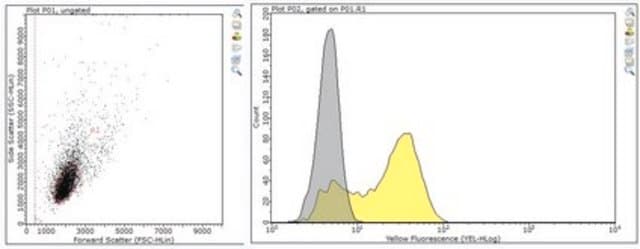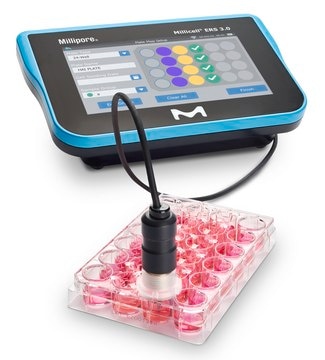MABF949-SF
Anti-Rabies Virus Antibody, Serum Free Antibody, clone 1112-1
clone 1112-1, from mouse
Sinónimos:
Glycoprotein, Glycoprotein Rabies virus
About This Item
Productos recomendados
biological source
mouse
antibody form
purified antibody
antibody product type
primary antibodies
clone
1112-1, monoclonal
species reactivity
rabies virus, virus
packaging
antibody small pack of 25 μg
technique(s)
ELISA: suitable
flow cytometry: suitable
neutralization: suitable
isotype
IgG1κ
UniProt accession no.
target post-translational modification
unmodified
General description
Specificity
Immunogen
Application
ELISA Analysis: A representative lot detected Rabies Virus, Serum Free in ELISA applications (Morgeaux, S., et. al. (2017). Vaccine. 35(6):966-971).
Quality
Flow Cytometry Analysis: 2 µg of this antibody detected Rabies Virus, Serum Free in L929 cells expressing Rabies virus glycoprotein.
Target description
Physical form
Other Notes
¿No encuentra el producto adecuado?
Pruebe nuestro Herramienta de selección de productos.
Optional
Certificados de análisis (COA)
Busque Certificados de análisis (COA) introduciendo el número de lote del producto. Los números de lote se encuentran en la etiqueta del producto después de las palabras «Lot» o «Batch»
¿Ya tiene este producto?
Encuentre la documentación para los productos que ha comprado recientemente en la Biblioteca de documentos.
Nuestro equipo de científicos tiene experiencia en todas las áreas de investigación: Ciencias de la vida, Ciencia de los materiales, Síntesis química, Cromatografía, Analítica y muchas otras.
Póngase en contacto con el Servicio técnico






